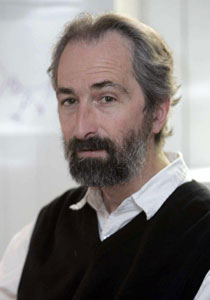
“Mutation, Drift, and The Origin Of Subcellular Features,” will be presented 4 p.m. Sept. 19 by Michael Lynch, Indiana University. A reception will be held at 3:30 p.m. The event is open to the public.
Understanding the mechanisms of evolution and the degree to which phylogenetic generalities exist requires information on the rate at which mutations arise and their effects at the molecular and phenotypic levels. Although procuring such data has been technically challenging, high-throughput genomic sequencing is rapidly expanding our knowledge in this area.
Most notably, information on spontaneous mutations, now available in a wide variety of organisms, implies an inverse scaling of the mutation rate (per nucleotide site) with the effective population size of a lineage. The argument will be made that this pattern naturally arises as natural selection pushes the mutation rate down to a lower limit set by the power of random genetic drift rather than by intrinsic molecular limitations on repair mechanisms.
Additional support for this idea derives from the relative levels of efficiency of DNA polymerases and mismatch-repair enzymes in eukaryotes relative to prokaryotes.
This drift-barrier hypothesis has general implications for all aspects of evolution, including the performance of enzymes and the stability of proteins. The fundamental assumption is that as molecular adaptations become more and more refined, the room for subsequent improvement becomes diminishingly small. If this hypothesis is correct, the population-genetic environment imposes a fundamental constraint on the level of perfection that can be achieved by any molecular adaptation. It also implies that effective neutrality is the expected outcome of natural selection, an idea first suggested by Hartl et al. in 1985.
Lynch will will discuss the emergence of layers of surveillance mechanisms within cells, demonstrating that the emergence of what might seem like robust cellular features endow the organism with no long-term selective advantage, while also increasing the cost of maintaining overly complex features.
The complete schedule of seminars may be found at http://biotech.unl.edu/
More details at: http://go.unl.edu/4pb